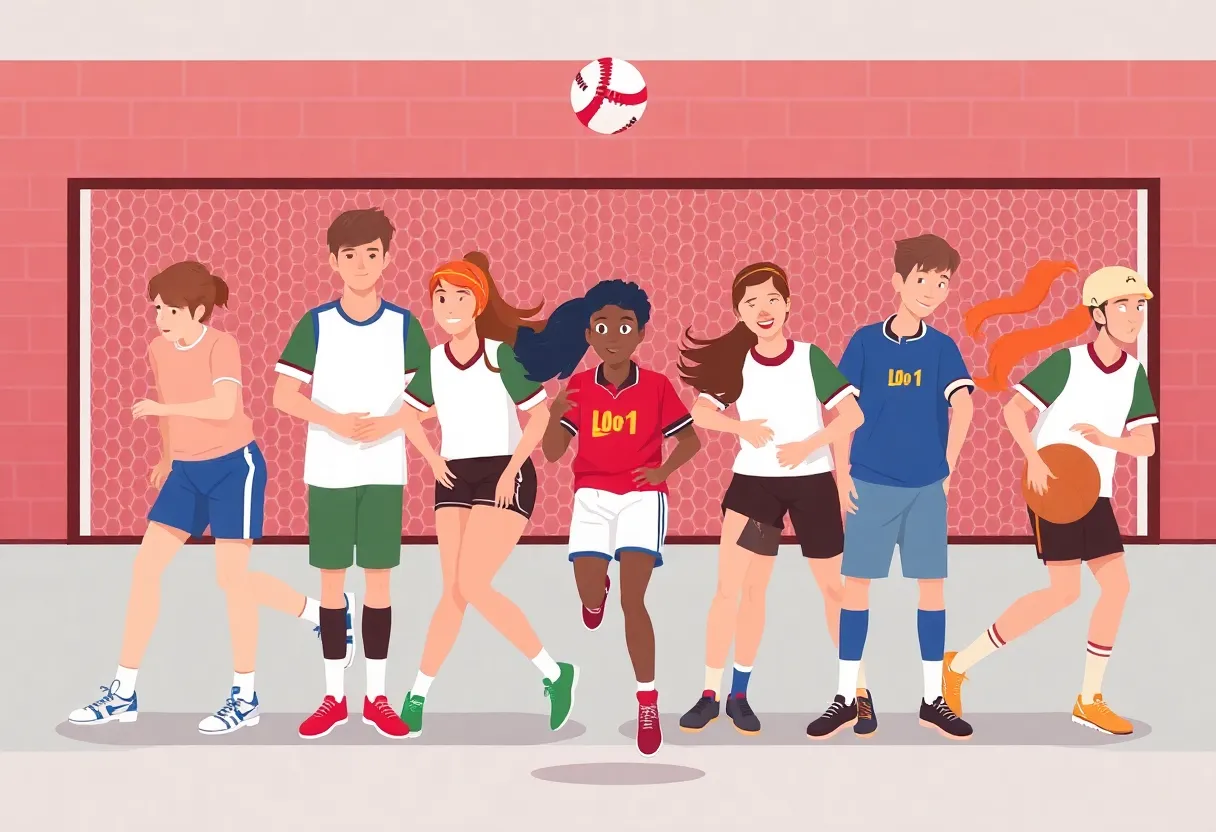News Summary
The Virginia High School League has ratified a policy preventing transgender students from participating in girls’ sports. This change, effective immediately, permits only athletes assigned female at birth to join girls’ teams. Supporters argue for fair competition, while opponents raise concerns over the emotional impact on transgender students. Governor Glenn Youngkin has endorsed the policy, linking compliance to federal funding. The decision marks a dramatic shift from Virginia’s previous inclusive stance on transgender participation in sports, stirring a nationwide debate on gender identity and inclusivity in athletics.
Virginia
The Virginia High School League (VHSL) has officially approved a new policy that prohibits transgender students from competing in girls’ sports, effective immediately. Under this newly ratified policy, only athletes assigned female at birth will be allowed to participate in girls’ sports teams.
This decision, made during a meeting of the VHSL Executive Committee on May 5, 2025, follows a controversial executive order from former President Donald Trump that encouraged limitations on the participation of transgender athletes in female sports. The vote to ratify the policy took place nearly two months prior to the finalization, reflecting a significant shift in the organization’s stance on the issue.
Supporters of the policy change argue that it is necessary to ensure fair competition in sports. Virginia Governor Glenn Youngkin has endorsed the new regulations, calling the prohibitions on transgender participation in girls’ teams a matter of “common sense.” He also warned that schools that do not comply with the new policy could face a loss of federal funding.
Proponents, including individuals from organizations focused on women’s issues, believe the move safeguards opportunities and fairness for female athletes. They argue that maintaining a level playing field is critical for the integrity of girls’ sports. The Family Foundation, for instance, has advocated strongly for policies that emphasize fairness for girls participating in athletics.
In contrast, opponents of the policy highlight the emotional and psychological impacts on transgender students. Advocacy groups, such as the National Women’s Law Center (NWLC), stress that the policy will harm students and their families, arguing that the number of transgender athletes affected is small compared to the significant repercussions of exclusion. The NWLC points out that real issues influencing female athletes include a lack of funding and instances of harassment rather than the presence of transgender competitors.
Equality Virginia, an LGBTQ rights advocacy group, has condemned the VHSL’s decision, asserting that it undermines Virginia’s reputation as a fair and inclusive state. The decision marks a reversal of a decade-long policy that previously allowed transgender athletes to compete in line with their gender identity, a shift prompted largely by ongoing national debates about the rights of transgender individuals in sports.
During the previous policy’s tenure, the VHSL encountered 49 requests from transgender athletes wishing to reclassify their gender identity for competitive purposes; 42 of these requests were approved. This feedback loop had provided a mechanism through which transgender participants could compete in a manner consistent with their recognized gender identity.
The new policy specifically affects transgender girls, whereas measures for transgender boys remain less stringent, creating a disparity within the guidelines treated by the VHSL. Notably, bills proposed earlier this year to similarly define sports teams based on biological sex failed to gain traction in the Virginia General Assembly.
The VHSL’s updated policy also received little public discussion during its ratification process, as it was included in the consent agenda during the May meeting. Furthermore, due to privacy regulations, the VHSL does not disclose specific details about transgender athletes’ participation or the sports in which they competed.
The policy change has ignited widespread debate over issues of inclusivity, fairness, and safety in school sports. As the situation evolves, various stakeholders continue to voice their perspectives on both sides, highlighting the inherent tensions present within the ongoing discussions of gender identity and sports participation at the high school level.
Deeper Dive: News & Info About This Topic
- Virginia Mercury
- 13 News Now
- Inside Nova
- Wikipedia: Transgender Sports
- Encyclopedia Britannica: Transgender

Author: STAFF HERE WILLIAMSBURG WRITER
The WILLIAMSBURG STAFF WRITER represents the experienced team at HEREWilliamsburg.com, your go-to source for actionable local news and information in Williamsburg, James City County, and beyond. Specializing in "news you can use," we cover essential topics like product reviews for personal and business needs, local business directories, politics, real estate trends, neighborhood insights, and state news affecting the area—with deep expertise drawn from years of dedicated reporting and strong community input, including local press releases and business updates. We deliver top reporting on high-value events such as Williamsburg Farmers Market, Yorktown Market Days, and Busch Gardens Food & Wine Festival. Our coverage extends to key organizations like the Greater Williamsburg Chamber of Commerce and Colonial Williamsburg Foundation, plus leading businesses in education and hospitality that power the local economy such as College of William & Mary, The Williamsburg Winery, and Sodexo. As part of the broader HERE network, including HEREVirginiaBeach.com, we provide comprehensive, credible insights into Virginia's dynamic landscape.


